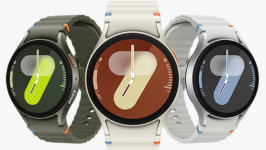Man's best friend is about to get a lot cooler.
An affectionately adorable beagle-Labrador retriever mix named Klondike has made his debut as the first puppy in the western hemisphere to have been birthed from a frozen embryo.
It was nine months ago that Klondike poked his puppy-dog snout into the world anxiously awaiting his arrival. This, after the pup's beagle mother was historically and artificially inseminated.
Conservationists see Klondike's singular journey into fruition as an encouraging development in their struggle against the pervasive reality of endangered species such as Klondike's candid brethren known as red wolves.
Red wolves are in fact one of the most endangered species in the world at present, with less than 100 animals extant in a small, cloistered area of coastal Texas and Louisiana.
The same artificial insemination process that was employed to birth Klondike may find use in preserving red wolves, as well as similarly endangered species throughout the globe.
Due to the somewhat crippling fact that dogs can sustain a pregnancy only once or twice a year, the freezing of canine embryos is significant as regards a fickle insemination schedule.
"Reproduction in dogs is remarkably different than in other mammals," said Alex Travis, a faculty member at Cornell's Baker Institute for Animal Health where "cryopreservation" - the process of freezing materials such as fertilized eggs - takes place.
"We're working to understand these differences so we can tackle issues ranging from developing contraceptives to preserving the genetic diversity of endangered animals through assisted reproduction," continued Travis who is also the Director of Cornell's campus-wide Center for Wildlife Conservation.
The first attempts at cryopreservation took place with the frozen sperm of fowl during a 1957 experiment in the UK and directed by team leader Christopher Polge. The process was soon attempted with human specimens, though it wasn't until 1963 that Peter Mazur - of the Oak Ridge National Laboratory in the U.S. - perfected the process that had been previously hampered by difficulties engendered by "lethal intracellular freezing."
It has been determined that embryos frozen up to 16 years can still result in pregnancy through artificial insemination.
Babies born from embryos have no greater likelihood of birth defects than those popping out the old fashion way.
Follow @profklickberg









